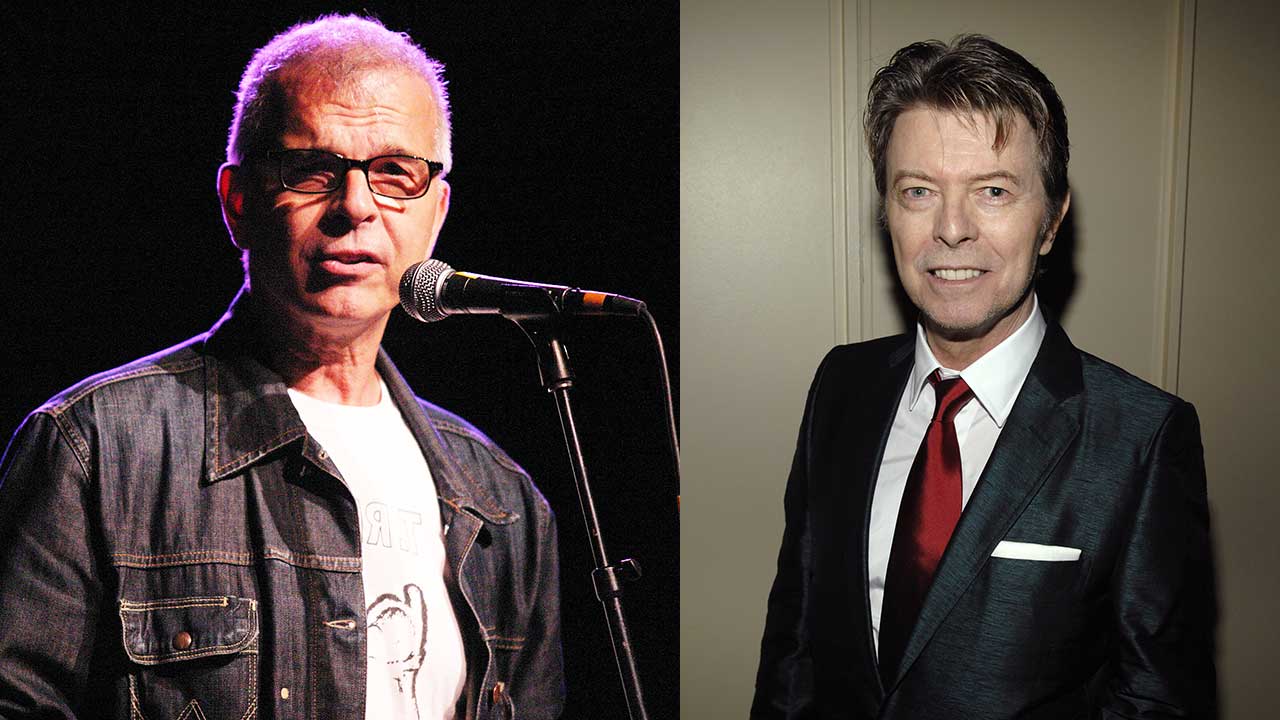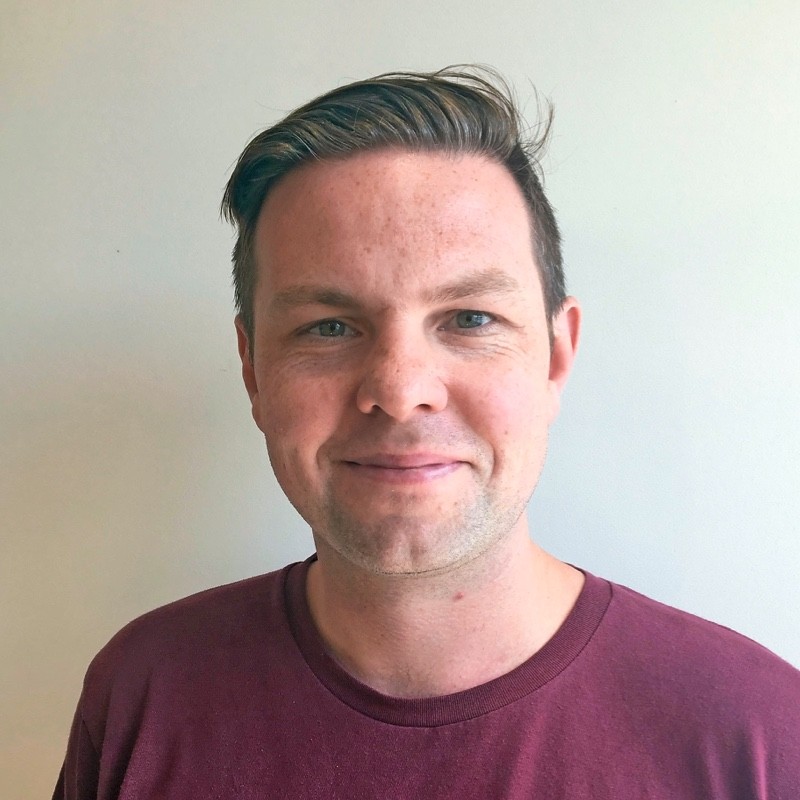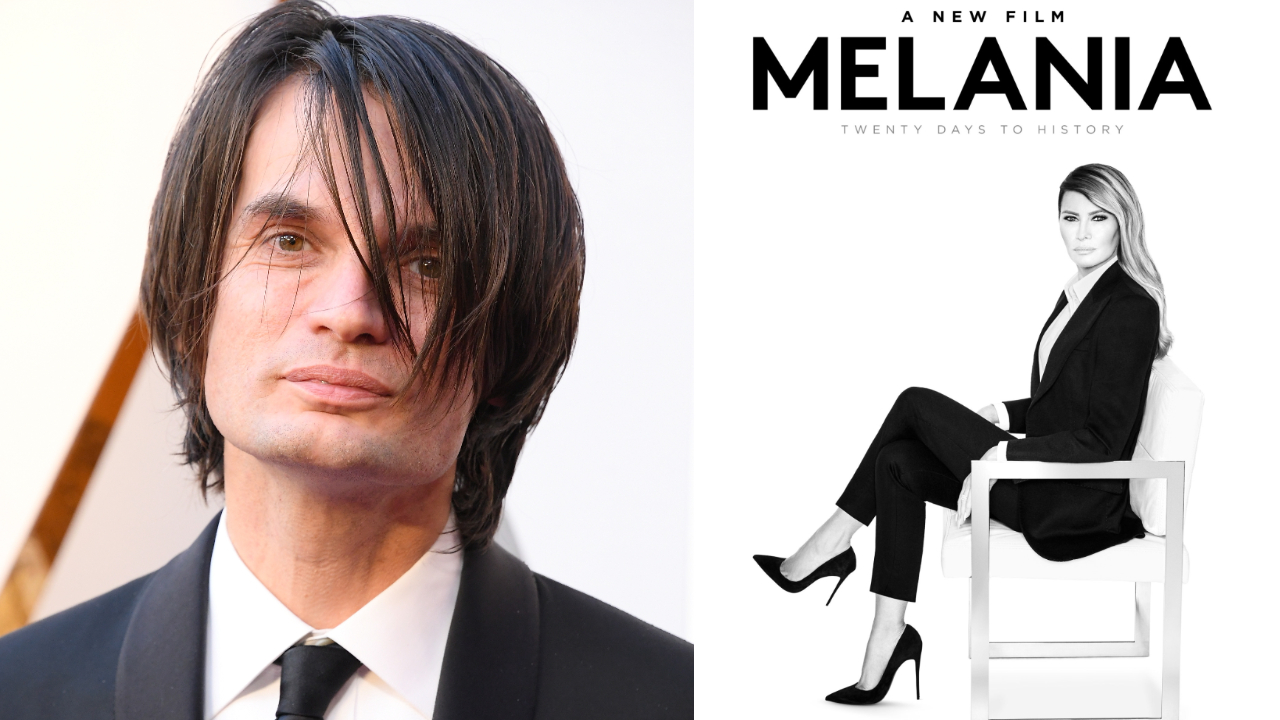“The minute I met him, I thought he was a special guy”: Tony Visconti looks back on working with David Bowie
Producer Tony Visconti was as close as David Bowie had to a constant artistic companion – here he looks back on their creative relationship

Select the newsletters you’d like to receive. Then, add your email to sign up.
You are now subscribed
Your newsletter sign-up was successful
Want to add more newsletters?

Every Friday
Louder
Louder’s weekly newsletter is jam-packed with the team’s personal highlights from the last seven days, including features, breaking news, reviews and tons of juicy exclusives from the world of alternative music.

Every Friday
Classic Rock
The Classic Rock newsletter is an essential read for the discerning rock fan. Every week we bring you the news, reviews and the very best features and interviews from our extensive archive. Written by rock fans for rock fans.

Every Friday
Metal Hammer
For the last four decades Metal Hammer has been the world’s greatest metal magazine. Created by metalheads for metalheads, ‘Hammer takes you behind the scenes, closer to the action, and nearer to the bands that you love the most.

Every Friday
Prog
The Prog newsletter brings you the very best of Prog Magazine and our website, every Friday. We'll deliver you the very latest news from the Prog universe, informative features and archive material from Prog’s impressive vault.
No producer worked with David Bowie as much as Tony Visconti. From co-producing Bowie’s 1969 second album to helping craft the sumptuous farewell record Blackstar, Visconti was as close as Bowie had to a constant artistic companion. “Bowie and I were idealists,” the producer told Classic Rock’s Harry Doherty. “We saw our relationship like a friendship, with an arts lab that was part of it. I was very active [with him]. I would be an all-round person to play bass, work the sound, work the lights.”
The songwriter and singer was still looking for his big break when Visconti first encountered him, but he could tell there was something extraordinary there. “The minute I met him I thought he was a special guy. I heard his first album, and I thought the guy was talented even though he lacked direction, and I could hear the star quality in his voice. I was surprised to find out that he was only 19. His personality was very mercurial. A non-stop talker. He was fidgety and very aware of his physical presence. I knew it was going to be a long haul with him, like Marc Bolan. Marc gave me the same goose bumps in the beginning.”
He says that when Bowie wrote Space Oddity, he told him, “it could very well be a hit, but you’re going to have a tough time following it up, because it’s not you”. The label had heard the demo and wanted to release it but, not wanting to produce, Visconti left the project briefly. “I wish I did record it, quite honestly,” he laments. He was right, though: “we couldn’t follow it up. It was really tough.”
The trick to the longevity of their partnership, he revealed, was accepting that Bowie wanted to go off and work with other producers. “It could be very disconcerting for people who work with him,” said Visconti. “He would go through periods using people like Mick Ronson and Aynsley Dunbar, and they’d think they were in the Bowie band. And then all of a sudden he decides he’s never going to use them any more. Even as a producer. I didn’t produce every Bowie album. He would just drop me, go with [Chic’s] Nile Rodgers [for Let’s Dance], for instance. His explanation would be that he just liked to change things. I got easier with it years later after the first time it happened. He’s an artist. He can work with whom he pleases. This is why his sound is so fresh.”
Bowie returned to Visconti for his final batch of records, though – enlisting the services of his old pal on early 00s outing Heathen and Reality and then again on The Next Day and Blackstar. It was a fitting end to one of rock’n’roll’s most fruitful pairings.
Sign up below to get the latest from Classic Rock, plus exclusive special offers, direct to your inbox!
Niall Doherty is a writer and editor whose work can be found in Classic Rock, The Guardian, Music Week, FourFourTwo, Champions Journal, on Apple Music and more. Formerly the Deputy Editor of Q magazine, he co-runs the music Substack letter The New Cue with fellow former Q colleague Ted Kessler. He is also Reviews Editor at Record Collector. Over the years, he's interviewed some of the world's biggest stars, including Elton John, Coldplay, Radiohead, Liam and Noel Gallagher, Florence + The Machine, Arctic Monkeys, Muse, Pearl Jam, Depeche Mode, Robert Plant and more.

